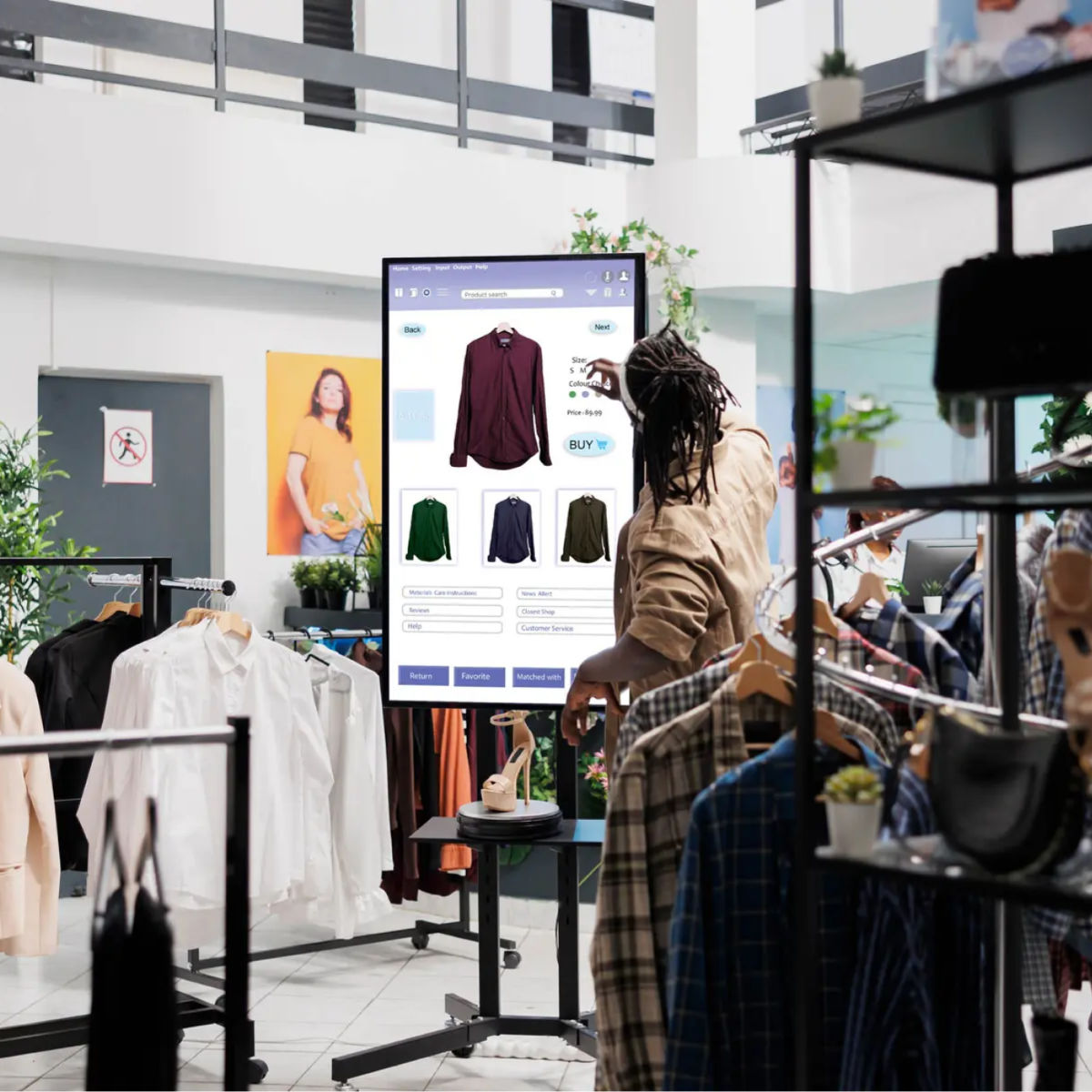The use of artificial intelligence (AI) in retail goes far beyond automation: it becomes a strategic lever for companies to secure their competitiveness and thrive in a digitally driven future. At the same time, AI is not only transforming processes in retail – it is also enabling entirely new forms of shopping.
The Importance of AI in Retail
Artificial intelligence is playing a key role in driving change across global retail. For the sector, this means greater efficiency, improved customer experiences, and new competitive advantages. Businesses that fail to adopt AI risk falling behind – both in comparison with innovative competitors and in meeting the expectations of modern consumers.
AI in retail is therefore becoming a key factor for remaining competitive in the long term and for actively shaping the transformation of the sector. Insights from experts demonstrate how companies can successfully apply AI – and why technological investment today lays the foundation for tomorrow’s success. In an interview, innovation researcher and Future Candy founder Nick Sohnemann outlines the opportunities for businesses.
How Does AI Benefit Retail?
AI offers a wide range of potential benefits across nearly all areas of business activity:
- Automated processes: AI can take over repetitive tasks such as ordering goods, price optimisation or managing returns. This reliefs staff and allows them to focus on customer service and personal consultation.
- Faster, better decision-making: Thanks to data-driven analysis, AI can identify market trends, seasonal patterns and individual purchase preferences at an early stage. This enables retailers to act proactively and remain flexible.
- Improved customer loyalty: With personalised product suggestions, targeted offers or dynamic pricing, every shopping experience becomes more tailored – increasing satisfaction and customer loyalty.
- Cost savings and efficiency: AI helps avoid errors in ordering, reduces storage and transport expenses, and minimises unnecessary waste of resources.
- New business models: AI opens the door to innovative services such as virtual shopping assistants, intelligent chatbots or digital showrooms.
Strategies and Applications of AI in Retail
- Enhancing the customer experience
Shopping experience is a key success factor today. AI supports the ability to deliver tailored offers in real time – whether through personalised product suggestions in online shops or digital assistants in physical stores. Voice and image recognition also speed up product searches.
- Optimising inventory management
Stock control is one of retail’s greatest challenges. Predictive analytics and machine learning algorithms allow inventory to be monitored and adjusted in real time, helping to avoid overstocking and prevent shortages.
- Generating demand forecasts
AI can accurately predict sales volumes. Whether seasonal trends, regional variations or short-term peaks – AI analyses historical data, combines it with external factors such as weather or events, and generates reliable forecasts. This increases planning certainty, improves profitability, and makes assortments more needs-based.
Conclusion: AI as a Driving Force for the Future of Retail
AI in retail is no longer just a topic for the future – it is already transforming how companies operate, sell, and interact with customers. It helps retailers make processes more efficient, reduce costs, and take the customer experience to the next level. What’s crucial is not to view AI merely as a tool for optimisation, but as a strategic success factor.
As the retail sector continues to evolve with technology, AI will not only control processes behind the scenes but also enable new forms of shopping and interaction. In doing so, AI becomes a driving force behind the digital transformation of the entire retail landscape.
Frequently Asked Questions on AI in Retail
How does AI work in retail?
AI in retail uses data analysis, algorithms, and automation to make processes like stock management, pricing, and customer interaction more efficient. It learns from purchasing behaviour, trends and external influences to offer retailers a well-informed decision-making base.
What does the future of AI in retail look like?
AI will become even more deeply embedded in retail in the future:
- Fully automated stores: AI-powered supermarkets that operate without tills.
- Hyper-personalisation: Shopping experiences will be tailored to such a degree that they resemble having a personal shopping assistant.
- Real-time analytics: Retailers will be able to analyse and respond to in-store customer behaviour instantly.








